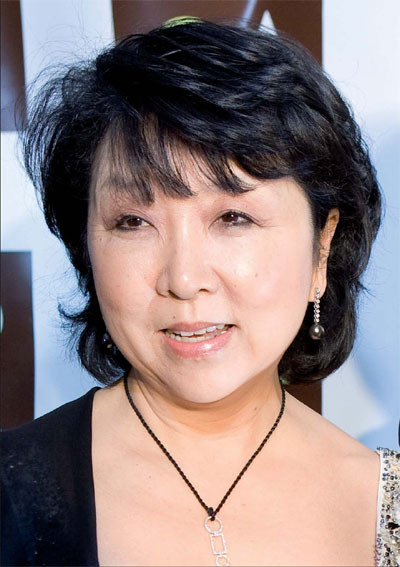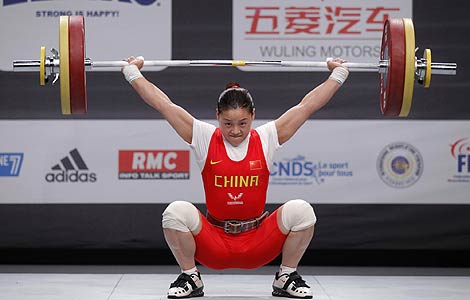Paving a new path for Chinese businesswomen
Updated: 2011-11-11 07:41
By Kelly Chung Dawson (China Daily)
|
|||||||||
|
As a partner of a US-based fund, Anla Cheng specializes in investments in China and Asia. [Provided to China Daily] |
Investor and philanthropist looking to change the way china is perceived in the us
Anla Cheng has made a name for herself as a businesswoman specializing in investments in China and Asia.
Currently a partner at Sino-Century China Private Equity LLC, she was previously the founder and CEO of Centenium Capital Partners LLC, an investment company. Through her work with various Asian nonprofits, she has also distinguished herself as a philanthropist in the Chinese-American community.
In an interview with China Daily, she discussed her success both as a woman and a minority.
"There are two things to overcome: being Asian and being a woman," she says. "But I made a conscious decision early in my career to be involved in work that was engaged in Asia, so there was a genuine need for my skills. As a woman, I really had to work my way up through a large corporation, but over time I realized that it's ultimately only your skill level that counts."
A graduate from the Wharton School of the University of Pennsylvania in the late 1970s, she went on to establish Cheng Capital, which specialized in Asian and Chinese private equity and hedge funds. She also previously worked at Goldman Sachs and Citigroup.
As the daughter of a Chinese diplomat stationed in Japan in the '50s and '60s, Cheng grew up attending elite private schools that seemed to specialize in grooming perfect wives, she says. Cheng chose instead to pursue art and design at New York's Pratt Institute, where she graduated summa cum laude and later had a short stint as a journalist. Her path to the US was decided early, she says. As a young couple in China, her parents had made a decision that their children would go to college in the US.
"My family knew from the moment I was born that I would eventually go to the US," she says. "Growing up, all I knew about the US was that I was lucky to have the status symbol of a Mickey Mouse lunch pail and access to Hershey's chocolate bars. The US represented strength, optimism and a great future."
But as a Chinese person with a Japanese connection, the last three decades have been fulfilling, she says.
"There was a point that Americans really thought that Japanese were going to take over the world," she says. "I felt very fortunate to be part of that excitement and growth. And while Japan has really stagnated over the last 20 years, during that time China has grown exponentially. For me, to watch that growth every year, whether it's in business or culture, has been a once-in-a-lifetime opportunity. To have experienced it twice and to be part of it, I feel incredibly fortunate. And I've been successful enough to be able to give back to the community, which I feel lucky to be able to do so."
Through her work with the China Institute, Cheng is developing a series of history curriculum guides.
"I've always felt very nationalistic," she says. "My dad was very interested in Chinese history, as am I. American schools here in the US teach very little about Chinese history, and I'm very excited to be developing history books with the help of these two great nonprofit entities."
In conjunction with a nonprofit called Facing History and Ourselves, where she is a trustee, Cheng started the China Project, which covers topics such as the "cultural revolution" (1966-76), the Nanjing Massacre, and possibly China's "comfort women", she says.
"Ultimately I think you can only see clearly about the future by understanding the past," she says. "If you analyze a lot of behaviors, whether it's a country or a village, it's always shaped by what's happened in the past. What happened to a country, what happened to your parents, what happened to you - it's all part of understanding your personal background."
Cheng also serves as a trustee at the Riverdale Country School, the Museum of Chinese in America (MOCA) and the Committee of 100.
"I passionately feel that it's a duty to help organizations like MOCA, because I'm in a position to help them," she says. "First, to educate Americans about Chinese-Americans, and to celebrate Chinese-Americans who have helped build the reputations of Chinese-Americans everywhere. I think in the past many Chinese-Americans had complexes being Chinese in an American society, but I truly believe that day is over. We want to make sure that Chinese-Americans can be proud of the achievements we have made through hard work and dedication.
"To hear that Joe Wong, who was formerly a scientist, is now a comedian, is fantastic," she says of the biochemist-turned-comedian who has appeared on The David Letterman Show twice. "It's not only the PhDs, or the scientists and mathematicians and tech people who are rising, but to see that there are astronauts and musicians who are Chinese, that's really wonderful."
She recalls an event at MOCA in which a number of five-star chefs were honored. Several of them held PhDs, she says with a laugh.
Ultimately, she might define herself as Chinese, but she defines herself most of all by her own achievements, she says.
"I have a lot of energy and feel I can do so much in so many areas," she says. "I feel very fortunate that I still have a lot of life ahead of me to do so many things."












